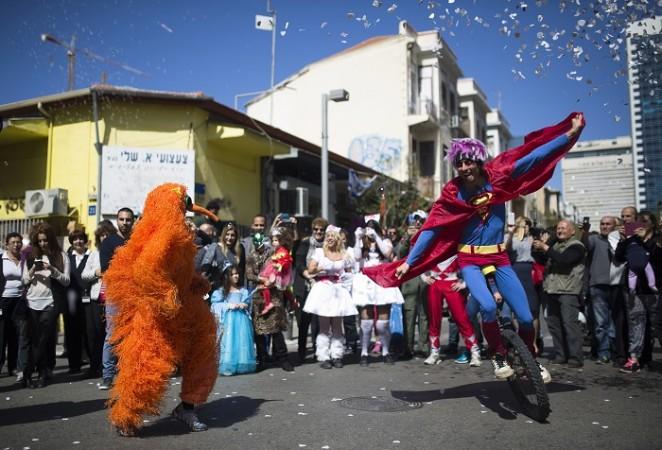
Purim is a Jewish observance that marks the time when people of Jewish descent were saved from death in the Persian Empire sometime in the fourth Century BCE, in an account highlighted in the 'Book of Esther'.
The celebration starts on the 14th day of the month of Adar according to the Jewish calendar, which falls either in late February or in Early March annually in the Gregorian calendar.
While many Jewish communities start the observance sometime around the sunset on the 13th day of Adar, there are many others who tend to observe Purim on the 15th day instead. In 2015, Purim starts on the evening of 4 March and ends on the evening of 5 March.
Here are five quick facts to know about the important Jewish holiday, information courtesy Huffington Post and Time and Date websites:
- According to the story of 'Esther', Purim celebrates the end of a series of bloody battles emanating from a plot of the Persian Empire to kill Jewish people. The story tells the tale of a Jewish Queen of Persia, Esther, who was married to the king. He was apparently unaware of the fact that she was a Jew. When the prime minister of Persia named 'Haman' plotted to kill all Jewish people in the Persian Empire, and Esther played an important role by informing the king about the conspiracy. Haman and his sons were executed while all Jews were urged to remain safe. A series a bloody war ensued resulting in thousands of casualties. Purim, in actual fact, celebrates the end of these wars.
- In many parts of the world, the celebration starts on the 13th day of 'Adar' although in Jerusalem and some other places, the festival is marked on the 15th day of the same month. There, it is known by the alternative name 'Shushan Purim'.
- An interesting part of the celebration includes the reading of the Book of Esther. During the reading, every time the name of 'Haman' appears, people use the noisemakers called groggers and also shout and make booing noise to condemn him.
- The festive nature of the event incorporates many elements of celebrations that are often never marked during other celebrations. Some people may fast for a few days to express solidarity to those who died during those battles.
- Among other important activities of the festival are sending across a lavish basket of food to one's loved ones or give things in charity. Eating a festive and rich meal along with large amount of wine also makes the day more festive apart from the regular public parades and puppet shows that intensifies the celebrations.

















